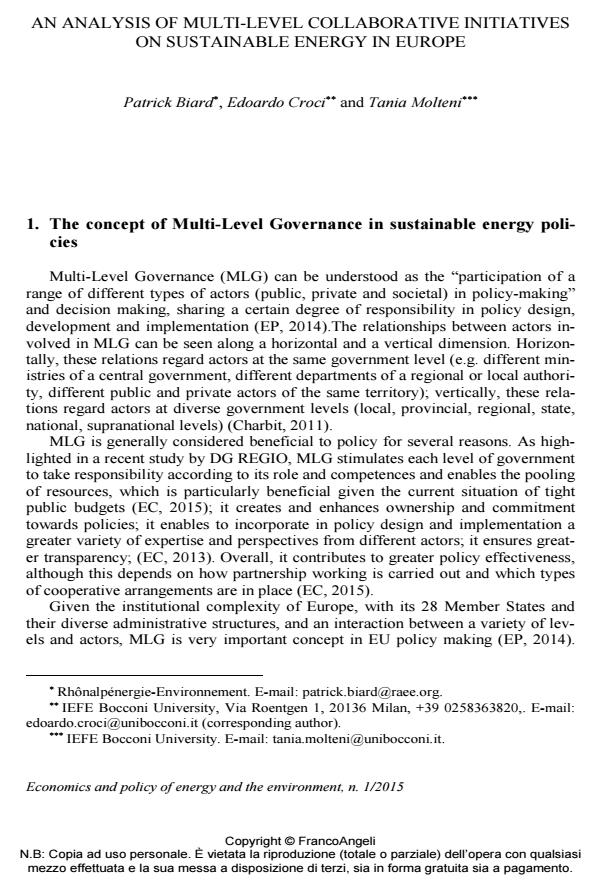An analysis of multi-level collaborative initiatives on sustainable energy in Europe
Titolo Rivista ECONOMICS AND POLICY OF ENERGY AND THE ENVIRONMENT
Autori/Curatori Patrick Biard, Edoardo Croci, Tania Molteni
Anno di pubblicazione 2016 Fascicolo 2015/1
Lingua Inglese Numero pagine 22 P. 89-110 Dimensione file 260 KB
DOI 10.3280/EFE2015-001007
Il DOI è il codice a barre della proprietà intellettuale: per saperne di più
clicca qui
Qui sotto puoi vedere in anteprima la prima pagina di questo articolo.
Se questo articolo ti interessa, lo puoi acquistare (e scaricare in formato pdf) seguendo le facili indicazioni per acquistare il download credit. Acquista Download Credits per scaricare questo Articolo in formato PDF

FrancoAngeli è membro della Publishers International Linking Association, Inc (PILA), associazione indipendente e non profit per facilitare (attraverso i servizi tecnologici implementati da CrossRef.org) l’accesso degli studiosi ai contenuti digitali nelle pubblicazioni professionali e scientifiche.
A polycentric, multi-scale, climate governance framework is developing in parallel to the negotiations for a credible global agreement. Subnational governments are increasingly engaged to contribute to climate mitigation. Local climate action is particularly evident in Europe, where regional and municipal institutions are often designing, implementing and monitoring sustainable energy policies, plans and actions in a cooperative way. Strengths and weaknesses of multi-level cooperation initiatives on sustainable energy in Europe are assessed thanks to data collected through the European project Coopenergy. Political commitment emerges as a major driver for successful cooperation, while lack of funding is recognized as a major barrier.
Parole chiave:Multi-level governance, regional and local authorities, sustainable energy, Europe
Jel codes:H7, Q4, R5
Patrick Biard, Edoardo Croci, Tania Molteni, An analysis of multi-level collaborative initiatives on sustainable energy in Europe in "ECONOMICS AND POLICY OF ENERGY AND THE ENVIRONMENT" 1/2015, pp 89-110, DOI: 10.3280/EFE2015-001007